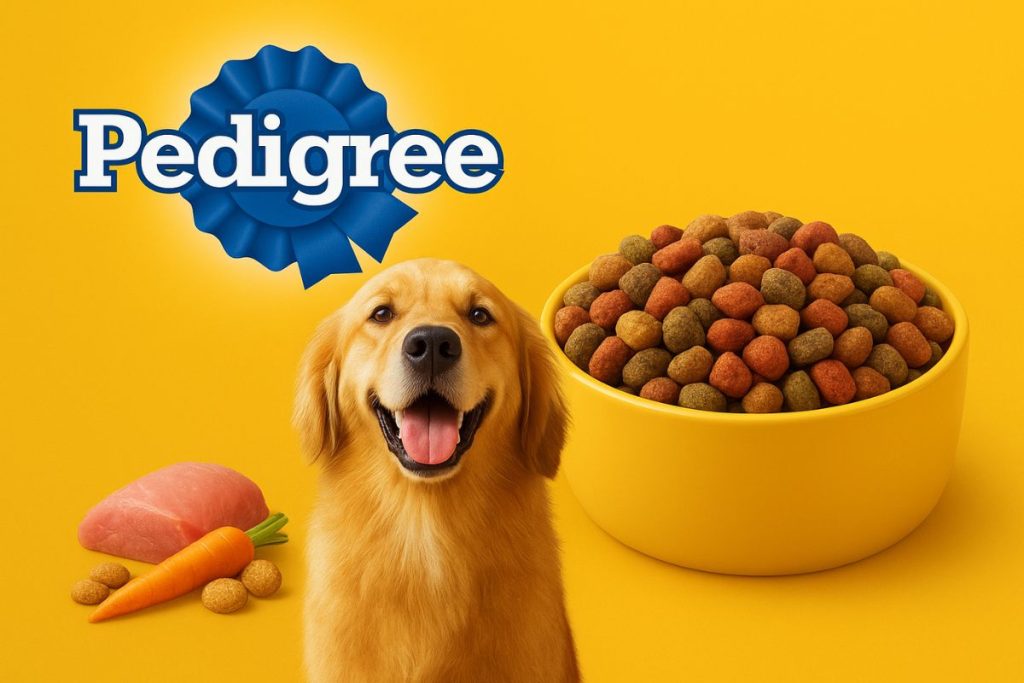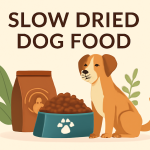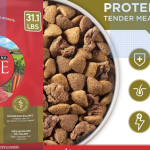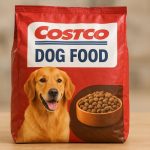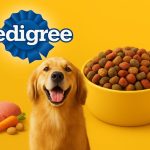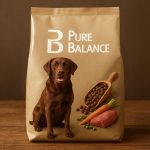Great. I’ll create a comprehensive 4000-word SEO-optimized blog post on the topic “Pedigree Dog Food: Affordable Everyday Choice,” featuring the primary keyword “beneful dog food” and incorporating secondary keywords like purina dog food, pure balance dog food, best dry dog food, and wet dog food. The article will follow all on-page SEO best practices including keyword density, meta tags, structured formatting, FAQs, and multimedia optimization.
I’ll let you know once the draft is ready for your review.
Meta Title: Beneful Dog Food: Affordable, Balanced Dog Nutrition (60 chars)
Meta Description: Beneful dog food is a budget-friendly, nutritious choice for dogs. Compare Purina’s formula to Pedigree and Pure Balance, and get tips on picking the best dry or wet dog food. (155 chars)
Beneful Dog Food: An Affordable Everyday Choice for Your Dog
Beneful Dog Food combines Purina’s reputation with budget-friendly pricing. It’s a Nestlé Purina PetCare brand (introduced 2001) offering dry and wet recipes formulated for dogs’ basic nutritional needs. Purina emphasizes that “in all of our dry dog food recipes, we start with real beef, chicken, or salmon as the #1 ingredient”. Beneful products also promise complete & balanced nutrition (with 23 added vitamins and minerals) and no artificial flavors. In practice, Beneful has ranked as one of the top-selling dog food brands (fourth-most popular in 2012, with over $1.5 billion in sales). In this guide we’ll examine Beneful’s ingredients, compare it to other affordable brands like Pedigree and Pure Balance, explain wet vs. dry food, and give tips to choose the best dog food for your pet.
Why Choose Beneful Dog Food?
Beneful dry and wet foods are designed as everyday, complete meals at a modest price. Purina highlights real meat in Beneful formulas (e.g. chicken, beef or salmon first) along with wholesome additions like fruits and vegetables. Key benefits include:
- Real Meat & Nutrients: Beneful uses real chicken, beef or salmon as the #1 ingredient in dry recipes. Each formula contains a mix of whole grains (rice, oats, barley) plus vegetables. The recipes boast 23 vitamins and minerals to support overall health.
- Balanced Nutrition: Beneful recipes are formulated to meet AAFCO standards for maintenance or growth, making them a “complete and balanced” diet for adult dogs or puppies. All life-stage formulations carry the AAFCO statement on the bag, ensuring they cover canine nutrient needs. Purina notes all its dog foods meet or exceed AAFCO profiles, reflecting their internal quality standards.
- Variety of Formulas: The Beneful line includes multiple options (puppy formulas, weight-management, grain-free, dry kibble, and wet/canned recipes). This lets owners choose according to life stage or preference. For example, Beneful IncrediBites is a high-protein mini-kibble, and Beneful Medleys offers hearty wet entrées. Offering both dry and wet recipes means owners can mix-and-match meals for variety.
- Affordable Pricing: Beneful is positioned as a budget brand. As one pet retailer notes, “Beneful Dog Food pays a lot of attention to the overall health of your dog, [but] their products are still economically priced”. A typical 30–40 lb bag of Beneful dry food costs on the order of $25–$35, similar to Pedigree and cheaper than premium brands. Bulk purchases or store brands (like Pure Balance) can be comparable or slightly lower in cost.
Overall, Beneful dog food offers a balance of quality and price. Owners get recognizable Purina quality control and nutrition claims, without the high cost of specialty “super-premium” diets.
Ingredient Highlights (Pros)
Pet nutrition experts note several positive aspects of Beneful’s recipes. Key pros include:
- Primary Meat Ingredient: Beneful lists a real meat (chicken, beef or salmon) first on the ingredient panel. This is preferable to formulas where the first ingredient is a meat by-product or grain filler.
- No Artificial Flavors in Dry Food: All Beneful dry recipes are free of artificial flavors. (The company adds “natural flavor” for taste, but avoids synthetic ones in kibble.)
- Nutrient Diversity: Beneful mixes grains, vegetables, and fruits for a variety of nutrients and fiber. (For example, carrots and peas appear in many recipes.) This contrasts with grain-free brands that often rely heavily on peas or potatoes alone.
- Positive Palatability: Consumer reviews often praise Beneful’s taste. The Petful review notes “positive consumer feedback on taste and quality”. Many dogs seem to relish the kibble and wet versions, which is important for dogs that can be picky.
- No Added Sugar: Unlike some cheap foods that use corn syrup solids, Beneful advertises no added sugar in its dry formulas. This can be better for weight control.
- Reputation & Availability: Purina is a trusted brand with extensive food safety research. Beneful follows Purina’s high standards (and Purina invests heavily in nutrition science). Beneful is also widely available (supermarkets, pet stores, online) with frequent sales and coupons, making it easy to find at a discount.
Image: Bowl of dry kibble (dry dog food), illustrating typical Beneful/Pedigree dry food.
Possible Drawbacks (Cons)
While Beneful has its strengths, there are trade-offs pet owners should know:
- Grains and Fillers: Beneful’s recipes include common grains like corn, wheat, and rice. Some dogs have allergies or sensitivities to grains. Critics note Beneful uses ingredients like corn and soy (cheaper protein sources). For example, Dog Food Advisor points out second ingredient in one Beneful recipe was corn. While these carbs are not harmful for most dogs, grain-free or limited-ingredient diets may be preferable for dogs with GI issues or allergies.
- By-Products and Additives: Some Beneful formulas contain chicken by-product meal and meat and bone meal (a concentrated protein) which are considered lesser-grade than fresh meat. There are also a few artificial colors (e.g. iron oxide for kibble color) and a synthetic vitamin K (menadione) that some veterinarians view skeptically. These ingredients are legal and generally safe in approved amounts, but they rank as “controversial” in some analyses.
- Recalls and Lawsuits: Like all major brands, Beneful has had recalls in the past (e.g. 2007 melamine scare; 2013 salmonella; a 2015 class-action suit over propylene glycol). Purina maintains these ingredients are food-grade and safe, and recalls were precautionary. Owners with health concerns should follow recall alerts.
- Moderate Protein Levels: Beneful is not a high-protein diet by today’s standards. Dry formulas are typically ~22–25% protein (on an as-fed basis), which is adequate for maintenance but lower than many performance or grain-free foods. Active breeds or highly active dogs may need a supplement or different diet with more protein.
In short, Beneful is not a “boutique” or grain-free diet. Owners who demand premium ingredients (novel proteins, no by-products, etc.) may look elsewhere. But for most pets, Beneful provides decent nutrition that meets AAFCO standards, and the trade-offs (grains, by-products) help keep the price low.
Comparing Brands: Beneful vs Others
Beneful vs Pedigree
Pedigree (a Mars, Inc. brand) and Beneful are both popular economy dog foods. They compete in the same market segment, so it’s useful to compare them:
- Ingredient Quality: Both brands use real meat (or meat meal) and grains. Beneful lists fresh meats first, whereas the Pedigree Adult Complete formula often lists “Meat and Bone Meal” as its top protein. Pedigree also includes some grains (corn, wheat) plus vegetable by-products. For example, Pedigree’s Grilled Steak & Vegetable kibble contains ground corn, meat and bone meal, and corn gluten meal. Neither formula is grain-free.
- Additives: Both claim no harmful additives. Pedigree emphasizes its formulas have “no high fructose corn syrup, artificial flavors or sugar”, mirroring Beneful’s no-sugar claim. Beneful likewise advertises “no artificial flavors” in its dry recipes. Both contain some artificial color (e.g. Pedigree kibble lists Red 40, Yellow 6; Beneful has iron oxide for color).
- Nutrition & Taste: Nutritionally, both brands meet AAFCO basic standards and include vitamins/minerals. Pedigree highlights antioxidants, omega-6 for coat health, and crunchy texture for teeth. Beneful emphasizes taste variety (multiple flavors) and real veggies. Pet owners often say both brands smell appealing to dogs and that picky dogs tend to eat both brands.
- Price: Pedigree tends to be slightly cheaper per pound than Beneful (especially in larger bags). However, they are in the same affordability tier. A 40-lb Pedigree bag can cost around $30, similar to Beneful’s 35–40 lb pricing. Store brand alternatives or bulk sizes of either can be even lower per meal.
- Brand Perception: Some owners perceive Pedigree as a “value brand” for extra-large packs, whereas Beneful is seen as a mid-tier budget brand. Neither is “premium”, but both carry big-company backing (Mars vs Purina).
In summary, Beneful and Pedigree offer similar pros and cons: balanced nutrition and affordability, with grain ingredients and some by-products. There’s no clear winner; choice often comes down to which formula your dog likes and special sales.
Beneful vs Pure Balance (Amazon Brand)
Pure Balance is Amazon’s in-house dog food (often sold at Amazon or Whole Foods/Walmart) and is another low-cost option. According to Dog Food Advisor, Pure Balance formulas have excellent ratings (average 4.5 out of 5 stars). Key points:
- Ingredients: Pure Balance “Chicken & Brown Rice” starts with chicken and chicken meal, with grains like brown rice and peas. This high ratio of animal protein is generally good. Beneful’s comparable adult formulas list beef or chicken, but often with corn or wheat following. Both brands are grain-inclusive, but Pure Balance leans more on complex carbs (brown rice) and legumes.
- Ratings: Pure Balance’s two main recipes earned 4–4.5 stars on Dog Food Advisor, whereas Beneful’s range averages ~2.5 stars. This suggests Pure Balance recipes are cleaner by DFA’s standards (fewer controversial ingredients) and nutritionally dense (higher protein).
- Cost: Pure Balance is sold in 30-lb sacks for prices often under $40 (depending on retailer), similar to or slightly higher than Beneful. It’s still an affordable brand, especially bought in 30-lb or 40-lb bulk bags.
- Variety: Unlike Beneful’s many flavors, Pure Balance has a very limited line (just chicken & lamb flavors). Beneful offers more flavor variety and wet options.
Overall, Pure Balance outperforms Beneful in ingredient quality and ratings (per Dog Food Advisor). However, Beneful has more product variety. If your priority is ingredient profile at a low cost, Pure Balance is a strong contender; if you want variety of flavors or wet/canned forms, Beneful is more flexible.
Purina Dog Food Family (Brand Context)
Beneful is part of Purina’s broader dog-food lineup. For context: Purina PetCare markets everything from economy to premium. According to Purina, their dry dog food brands include Alpo, Dog Chow, Beneful, Purina ONE, and Pro Plan. Wet food brands include Alpo, Beneful, Dog Chow, Purina ONE, etc. Each brand targets different buyers – Alpo and Dog Chow are entry-level, Beneful and ONE mid-tier, Pro Plan and Beyond as premium. All are formulated to meet AAFCO standards. In that spectrum, Beneful sits in the mid-economy slot: more nutritious than Alpo/Dog Chow, but below Purina ONE or Pro Plan.
Linking across brands: note “Purina dog food” includes Beneful and others. Purina emphasizes that all their dog foods are complete and balanced, so any Purina product (Beneful included) is intended to support general health.
Choosing Between Dry and Wet Food
The type of food – dry kibble vs wet/canned – matters. Beneful offers both. Understanding the difference can help tailor feeding to your dog’s needs. As PetMD explains, both types can be nutritionally sound, but have unique pros:
- Wet Dog Food: Contains very high moisture (often ~75–80% water). This helps hydrate dogs that don’t drink enough. Canned food is also highly palatable – its aroma and texture entice picky eaters or older dogs with weaker appetites. It generally has lower carbohydrate concentration (which can benefit weight control) and is easier to chew for dogs with dental issues. Wet food can be served alone or as a mixer to jazz up dry kibble.
- Dry Dog Food (Kibble): Contains about 10% moisture (max), so it’s shelf-stable and keeps longer once opened. Kibble’s crunch can help reduce tartar and promote dental health. It’s easy to portion out and store (no refrigeration needed), making it convenient for busy owners. Cost-wise, dry food usually offers more meals per dollar, so it’s financially feasible for large dogs or heavy eaters. Dry kibble is also compatible with interactive feeding toys or slow feeders (a form of enrichment).
Beneful itself notes you can mix wet and dry foods for variety. For example, you might pour a pouch of Beneful canned food over dry kibble, combining texture and moisture. The table below summarizes main benefits:
- Wet Food: Boosts hydration; great for fussy or senior dogs; high taste appeal; helps dogs feel fuller on fewer calories.
- Dry Food: Supports dental health via chewing; generally cheaper per meal; easy to store and serve; compatible with puzzle feeders.
Choosing the Best Dry Dog Food: When selecting a dry kibble (whether Beneful or any brand), consider your dog’s life stage and health. Puppies need puppy-formulated diets (e.g. DHA for brain/eye development). Large breeds and seniors have special nutrient profiles. Check the AAFCO statement on the bag to ensure it’s complete and balanced for your dog’s stage. Look for a named meat (chicken, beef, lamb) as the first ingredient, and appropriate protein/fat content. The best dry dog food will vary by individual dog, but veterinarians often recommend premium brands like Hill’s Science Diet, Royal Canin, or Purina Pro Plan for targeted nutrition. However, affordable brands like Beneful or Pedigree can be “best” for owners on a budget or for dogs without special needs – as long as the pet is healthy and thriving on them.
Image: Bowl of wet dog food (canned or pouched meal) ready to serve.
Tips for Buying Beneful Dog Food (or Any Budget Brand)
When shopping for Beneful or similar value dog foods:
- Compare Formulas: Beneful comes in many formulas (Healthy Weight, Originals, IncrediBites, grain-free, etc.). Read labels to pick the right one (e.g. weight formula has fewer calories, IncrediBites has smaller kibble). Also compare prices and sizes (a larger bag or bulk package often has a better price per pound).
- Look for Sales/Coupons: Because Beneful is mainstream, it’s often on sale or has printable coupons. Pet clubs (like Amazon Prime, Chewy autoship, or store loyalty programs) can save 10–20%. Even switching between brands on sale (beneful vs Pedigree vs Pure Balance) can be cost-effective.
- Check Recalls: Subscribe to a pet food recall tracker (the FDA or sites like the Petful Recall Center) to stay updated. Recalls are uncommon, but it’s wise to register the lot number on Beneful bags.
- Introduce Gradually: If switching from one brand to Beneful (or vice versa), do it gradually over 7–10 days to avoid digestive upset: mix increasing amounts of the new food with the old.
- Monitor Your Dog: Watch your dog’s weight, coat, and stool on Beneful. A healthy dog should have a shiny coat, steady weight, and firm stools. If you notice issues (e.g. itchy skin, weight gain, loose stools), consult your vet. Those could indicate an allergy or that a different formula is needed.
Pedigree, Pure Balance, and Other Alternatives
If you’re researching affordable dog foods, you’ll likely encounter:
- Pedigree: A Mars brand (not related to Beneful). Pedigree dry kibble is sold widely as a no-frills option. Its Adult Complete Nutrition line lists grains and by-products, but boasts “complete and balanced nutrition” with no HFCS or artificial flavors. Many owners rotate between Pedigree and Beneful depending on sales. Pedigree is often slightly cheaper per pound and comes in very large bags (30–40+ lbs).
- Pure Balance: Sold at Amazon/Walmart, Pure Balance is frequently rated highly. Its ingredients (chicken-based) and price make it an excellent “best value” pick. Unlike Beneful, Pure Balance is grain-free or grain-inclusive but free of corn and wheat, which is attractive for some buyers. If you see it available, it’s worth comparing ingredients side-by-side.
- Pedigree vs Pure Balance: Pure Balance tends to edge out Pedigree on ingredient quality (white vs yellow corn differences, no by-products). Pedigree has a long reputation (over 50 years old) and charitable programs (Pedigree Foundation for shelters), which some customers appreciate.
- Other Pure Wet or Dry Brands: Beyond these, many store or online brands exist. The pattern is: cheaper brands rely on grains and by-products; mid-tier brands (like Beneful) mix meat+some grains; premium brands use higher meat and special nutrients. Check the ingredient list – named meat first is key.
No single brand is perfect. The best dry dog food depends on your dog’s needs. For example, grain-free Beneful or grain-free Pure Balance might suit a dog with grain allergies. On the other hand, a fastidious eater might do well on the taste of Beneful’s wet recipes. Always read labels, and when in doubt consult your vet.
FAQs
Q: Is Beneful dog food good for my pet?
A: Beneful can be a good choice for many dogs. It uses real meats and is formulated to be complete and balanced. Many pet owners find their dogs thrive on Beneful, especially when the dog doesn’t have allergies to grains or meats used. On the positive side, dogs often love the taste and Beneful covers basic nutrition affordably. On the downside, Beneful contains common ingredients (corn, soy, by-products) that some pets don’t tolerate as well. If your dog is healthy and happy on Beneful (shiny coat, good energy, normal weight), it can be a fine regular diet. Always introduce any new food gradually and watch for any adverse reactions.
Q: How does Beneful compare to Pedigree dog food?
A: Beneful and Pedigree are both budget brands, but they have subtle differences. Beneful emphasizes real meat as the top ingredient and offers more wet food options, while Pedigree often uses meat meal and focuses on dry kibble (e.g. roasted chicken or steak flavored kibble). Both claim complete nutrition without harmful additives (no HFCS, no artificial flavors). Pedigree is usually a few cents cheaper per pound. In practice, some dogs prefer one brand’s taste/texture over the other. The best approach is to try a small bag of each and see which your dog digests and enjoys more.
Q: What is Pure Balance dog food?
A: Pure Balance is a store-brand (Amazon or Walmart) dog food known for its low price and high ratings. It comes in a couple of grain-free formulas (e.g. Chicken & Brown Rice, Lamb & Rice) that both earned about 4–4.5 stars on DogFoodAdvisor. Pure Balance’s recipes start with named proteins (chicken or lamb) and whole grains (brown rice) or legumes, plus a blend of vitamins/minerals. It’s often even cheaper per ounce than Beneful and considered a “best budget pick” by many reviewers. If you see Pure Balance stocked, it’s a solid alternative to Beneful.
Q: Should I feed my dog wet food or dry food?
A: Both types have merits. Wet food (canned/pouched) has high moisture, which helps hydration and tastes great – ideal for picky or older dogs who might not drink enough. Dry kibble is more cost-effective, easy to measure, and crunching it can help dental health. Many owners do a mix: for example, top Beneful dry kibble with Beneful wet stew a few times per week. The choice depends on your dog’s health and preferences. Veterinarians generally agree that a combination can be healthy, as long as the total daily calories and nutrients meet your dog’s needs.
Q: What is the best dry dog food on a budget?
A: “Best” depends on priorities. Veterinarians often recommend premium kibbles (Hill’s, Royal Canin, Purina Pro Plan) for specific health benefits. But for budget shopping, brands like Beneful, Pedigree, Pure Balance and even Purina Dog Chow are reasonable choices. Beneful stands out for its meat-first ingredients and variety. Pure Balance stands out for rating. Pedigree stands out for cost. The key is to find a reputable brand that meets AAFCO standards and suits your dog’s taste. Whatever you pick, be sure it fits your dog’s life stage (puppy vs adult) and watch your dog’s condition on it.
Conclusion
Beneful dog food offers a solid, affordable option for everyday feeding. With real meat ingredients, essential vitamins and minerals, and both wet and dry formats, it delivers complete nutrition for most dogs. While it contains common fillers (corn, soy, by-products), these choices help keep costs low. In head-to-head comparisons, Beneful holds its own against other budget brands like Pedigree and Pure Balance – all aim to balance cost with adequate nutrition. Ultimately, the best dog food is one your pet eats eagerly and digests well. Try Beneful with your dog and monitor its health: a shiny coat, consistent energy and weight are good signs.
Ready to give Beneful a try? Check local store sales or online deals (some places even offer sample packs). And don’t forget to mix in fresh water and regular exercise for a happy, healthy pet. If you have tips or experiences with Beneful (or other affordable dog foods), share your thoughts below or on social media – we’d love to hear how these choices work for your furry friend!
Sources: Official brand sites and pet health experts were used to ensure accurate, up-to-date info on Beneful, Purina, Pedigree, and dog nutrition. Each citation above links to the supporting material.

